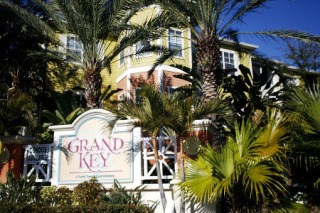|
Article Courtesy of The St. Petersburg Times By Marlene Sokol Published January 17, 2010 Russ Rossi didn't want to raise homeowner dues in Heritage Harbor, a family-friendly golfing community on the western edge of Lutz. But his board was looking at $95,000 in delinquent fees. They trimmed what they could from their budget, largely by taking a hard line when renegotiating equipment leases. They still had to hit up the home- owners for an extra $8 a month — a 7.5 percent hike. "So far I haven't heard any feedback at all," said Rossi, the association president.
With delinquencies running as high as 45 percent, some boards are pursuing nonpaying homeowners aggressively with liens and foreclosure suits. In southeast Hillsborough's FishHawk Ranch, which had 170 foreclosures in 2009, a lawyer filed 12 liens for nonpayment of dues in a single day. "(The recession) has hit everybody and it has hurt everybody, but it has not hurt everybody equally," said Rick Pitrowski, whose Brandon-based Communities of America manages 23 associations. He has seen associations put less money into their reserve accounts, although state laws limit their ability to do so. Many are reluctant to cut back on the niceties — such as holiday parties and children's programming — for fear their members will feel shortchanged. "People who are paying their bills are telling us, 'I want the guard at the gate. I want this. I want that,' " he said. Some boards are focusing their collection efforts on families who are still in their homes and would seem to have the most incentive to square their accounts. That strategy could weaken their case, warned lawyer Robert Tankel, as is it amounts to selective enforcement. But Rossi, of Heritage Harbor, said he sees little to gain when the owners have abandoned their homes. And he would rather not go to court at all. "We usually have a half a dozen or more on payment plans," he said. "We all live in this community. And we are willing to work with any resident who wants to work with us." Pool water cooler; buy your own cable Some boards are trying to lessen the burden by simplifying their mandate. Like a lot of newer communities, New Tampa's Live Oak Preserve used to charge homeowners for basic cable television service. Live Oak's board recently ended its bulk cable agreement with Bright House, a move that helped lower the monthly dues from $164 to $129. "We started with big budget deficits, poor service, and facilities that were in great need of repair," president Frank Micallef wrote in his association's January newsletter. "In less than a year, I am proud to say that our house is in order!" At the Grand Key condominium complex near MacDill Air Force Base, the swimming pool temperature is a few degrees cooler and there were no poinsettias around the pool deck at Christmas. "If something is broken, we will fix it," said manager Suann Schey. "But if it doesn't break, we're not going to upgrade." She has mixed feelings about the new year. Tighter lending rules have made it hard for buyers to obtain financing for condos, especially in high-rental areas, she said. At the same time, some investor owners who lost other homes are returning to Grand Key to live in their condos. That makes for a more stable environment. "I don't look for it to get much better," Schey said. "But I don't look for it to get too much worse, either." While many of the budget shortfalls come from overextended homeowners who can't pay their dues, some businesses also are coming up short. In Cory Lake Isles, home builder Avatar shelved its plans to build townhomes near Morris Bridge Road, and has not been paying assessments on those lots to the Community Development District. CDD officers made up much of the difference by shaving costs from security and landscaping, said Scott Shaw, a member of the board of supervisors. Concessions from vendors helped, he said. "We just put our heads together and came up with good ways to get the costs down." Some community managers are even more direct when dealing with a contractor or supplier. "We know he's suffering, too," said Judi Allen of KW Property Management. "But we'll go to him and say, 'We're looking to cut costs. Can you give us 5 percent?' " No association dues from rental homes In condo complexes, security is one of the first expenses to be trimmed, Allen said. Does safety suffer as a result? "It depends on the property," she said. "Sometimes it's the beginning of a problem, when people find out. It's a risk." Associations also are taking action when large numbers of owners rent out their properties and nobody pays the dues. Tankel's firm has started suing both the landlords and the tenants. His clients don't want to own the homes, he said. They simply want a court-appointed receiver to collect the rent and deduct the dues. Neither Tankel nor Allen were optimistic about 2010. Too many homeowners and condo owners are still struggling to pay their expenses, they said. And Tankel predicts a second wave of foreclosures will occur among subprime five-year mortgages that were written in 2005. If there is one bright spot, it is this: Homeowners who pay their dues will have an easier time getting deck chairs at their neighborhood pools. Heritage Harbor, Grand Hampton and other resort-style communities suspend pool and clubhouse privileges to nonpaying homeowners. At any given time, between 40 and 60 residents find themselves in that position, Rossi said. Unlike many of his colleagues, he is trying to be optimistic about the economy. "I'm seeing fewer homes for sale, although I don't know why," he said. "I'm hopeful that we've bottomed out, and that we can keep our heads above water." |
